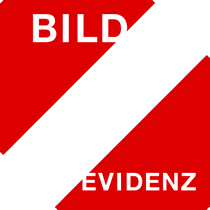Prof. Dr. Robert WilliamsProfessor für Kunstgeschichte University of California, Santa Barbara |
Aufenthalt
Mai 2017 – Juni 2017
Forschungsprojekt
Nature and Negation: Toward a Critical Phenomenology of Disegno
Drawing (disegno) was a technique of central importance to early modern culture. Before the invention of photography, the making of all images depended on some degree of skill in drawing, and the function of drawings ranged from the purely „objective“ documentary transmission of information to the kinds of imaginative transformations and creative projections we associate specifically with art. Drawing might be understood to involve both passive acceptance of the natural world and a more active process of selection and emphasis; at the same time, however, the passive stance could be understood as negative, in that requires the disciplined suppression of imaginative prerogatives, while the more instrumental disposition could be seen as demanding the negation of „objective“ nature.
Although art theorists of the time attest to the importance of disegno – its centrality to what distinguishes art from other, less sophisticated forms of representation – and deploy a range of conceptual tools for explaining it that are still useful in helping to map the realm of possibilities it covers, none are entirely adequate, either for a general understanding of what drawing, at its most highly developed, was understood to do, nor for an adequate explanation of any individual drawing. The hypothesis governing this study is that disegno as it came to be practiced at the most sophisticated level, was used to shape forms in such a way as to suggest that they could have been shaped differently – to reveal their potentiality as well as their actuality – and thus to describe particular forms in such a way as to liberate us from any particular form.
Forschungsschwerpunkte
- Kunst der italienischen Renaissance
- Geschichte der Kunsttheorie
- Geschichte der Kunstgeschichte
Publikationen
Bücher
Art, Theory, and Culture in Sixteenth-Century Italy: From Techne to Metatechne (Cambridge University Press, 1997)
Art Theory: An Historical Introduction (Blackwell, 2004; second edition, 2008; Chinese translation by D. Ning, University of Beijing Press, 2008; Korean translation by Y.J. Kim and H.Y. Cho, Myungin Press, 2011)
Michael Baxandall, Vision, and the Work of Words (co-edited with P. Mack; Ashgate, 2015)
Raphael and the Redefinition of Art in Renaissance Italy (Cambridge University Press, 2017)
Aufsätze
“Das Eine im Wandel: Music and Kunstwissenschaft”, Journal of Art Historiography (1, 2009; http://arthistoriography.files.wordpress.com/2011/02/media_139134_en.pdf)
“Virtus Perficitur: On the Meaning of Donatello’s Bronze David”, Mitteilungen des Kunsthistorischen Institutes in Florenz, 53, 2009, 217-28
“La fenomenologia della virtù”, Le Vite di Vasari: Genesi, Topoi, Ricezione, A. Nova & K. Lemelsen, eds. (Kunsthistorisches Institut, Florence, 2010) 67-9
“Inferential Criticism and Kunstwissenschaft”, Michael Baxandall (Mack & Williams, eds., cited above, 91-106) 91-106
“Kunstwissenschaft, Bildwissenschaft, and Vasari”, Vasari als Paradigma, F. Jonietz and A. Nova. eds., (Kunsthistorisches Institut, 2016)
“Repetition, Variation, and the Idea of Art in Renaissance Italy”, California Italian Studies (online, 2017)
KontaktRober WilliamsKolleg-Forschergruppe BildEvidenz Arnimallee 10 |


